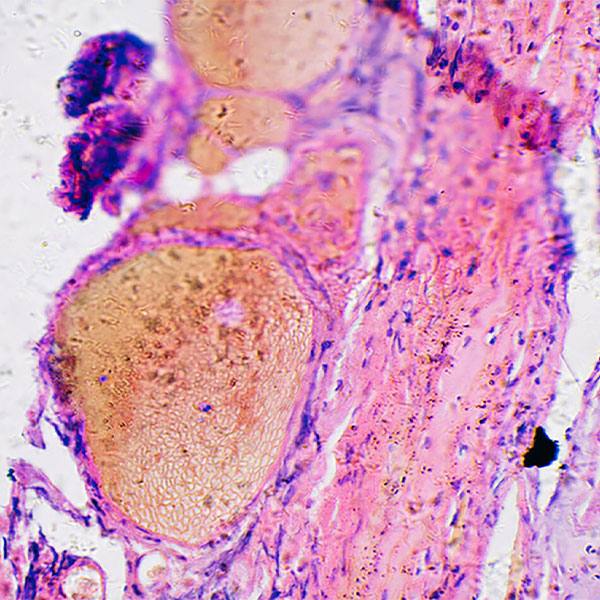-
Research
Engineering stem cells to treat liver disease
During clinical rotations in medical school, Kianna Nguyen encountered many patients with liver failure and was struck by a grim reality: Their only hope was a transplant. The shortage of donor organs and therapeutic options was at once frustrating and inspirational, triggering her research interest in cellular therapies for liver failure.
"Research provides us with the understanding to develop tools to make big changes in clinical problems like those facing patients with liver failure," says Nguyen. "I want to be on the forefront of developing medical technologies that provide alternatives. I derive a lot of passion for research through thinking about the future patients I will be treating in the clinic."
Nguyen is a fifth-year M.D.-Ph.D. student in the Mayo Clinic Alix School of Medicine, who is also completing her Ph.D. in regenerative sciences through the Mayo Clinic Graduate School of Biomedical Sciences.
Her research is focused on redirecting human embryonic stem cells to become liver cells with the potential for cell, tissue and organ repair. This research is aimed at providing an alternative to a liver transplant.
Supervising her research is mentor Alexander Revzin, Ph.D., who leads Mayo Clinic's Cellular Microsystems and Biosensors Laboratory. Dr Revzin is a biomedical engineer and scientist whose lab has developed a technique to encapsulate stem cells and reprogram them to become different cell types with therapeutic potential. The stem cells reside in a microcapsule — a microscopic plastic container filled with an aqueous solution. The microcapsule protects the cells from physical damage during bioprocessing and may be used to deliver signals that direct stem cells toward a desired tissue such as pancreas or liver tissue. The goal of the project is to use microcapsules to make liver tissue in sufficient quantities for use in humans. The hope is to one day transplant these cells as a treatment for complex diseases such as liver failure.
"Encapsulation is an exciting new way to allow for scalable manufacturing of cellular therapies while decreasing the cost," says Dr. Revzin. “Kianna Nguyen has a unique skill set to work on this project. She is trained as a chemical engineer and biomaterials scientist and is well-positioned to develop encapsulation strategies. She is passionate about improving outcomes for patients with end-stage liver disease."
"The additional advantage of growing liver cells inside of capsules is they are provided with a protective shell so that they are not destroyed by the immune system when they are transplanted into the body," adds Nguyen. "Ultimately, the goal of this project is to be able to redirect liver cells on a large scale."
Regenerative sciences is an emerging field aimed at delivering new medicines from biological sources such as blood and cells to address conditions with few therapeutic options. The goal is to cure disease rather than treat symptoms. Mayo Clinic's Center for Regenerative Biotherapeutics is leading efforts to develop groundbreaking curricula to train physicians and scientists for this potentially transformative medical care.
A disease with complications
More than 100 million people in the U.S. have some form of liver disease, according to the American Liver Foundation. While the liver has a remarkable ability to regenerate, chronic conditions such as cirrhosis, hepatitis and fatty liver disease can quickly progress to end-stage disease. Without a transplant, many patients will die.
Some people with cancer or alcohol use disorder are not suitable for transplantation. Those who are transplant candidates face complications including rejection, infection and risk of cancer.
"Stem cell-derived liver cells could provide a renewable source of liver cells to serve as a treatment for patients with liver failure. This could open the door to treatment for many liver patients who previously did not have any options," says Nguyen.
A native of Colorado, Nguyen was attracted to Mayo by the opportunity to train in clinical and laboratory settings with some of the most accomplished clinicians and researchers in the world.
"Mayo Clinic has so many exemplary physician-scientists. There is no shortage of mentors because faculty here are all so happy to share their expertise with you," she says. "I have been able to grow so much as both a budding clinician and scientist. I am thankful to continue my education here."
Nguyen aspires to specialize her practice and research in gastroenterology with a focus on hepatology (liver) transplantation. She is on a path to graduate with her M.D. and Ph.D. in 2027.
###










